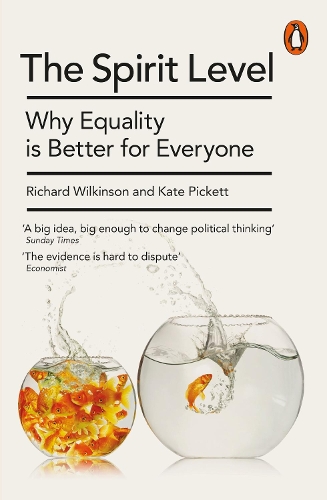
The Spirit Level: Why Equality is Better for Everyone
(Paperback)
Publishing Details
The Spirit Level: Why Equality is Better for Everyone
By (Author) Kate Pickett
By (author) Richard Wilkinson
Penguin Books Ltd
Penguin Books Ltd
10th January 2011
4th November 2010
United Kingdom
Classifications
General
Non Fiction
Social classes
305
Physical Properties
Paperback
400
Width 130mm, Height 198mm, Spine 21mm
292g
Description
A groundbreaking work on the root cause of our ills, which is changing the way politicians think Why do we mistrust people more in the UK than in Japan Why do Americans have higher rates of teenage pregnancy than the French What makes the Swedish thinner than the Greeks The answer- inequality. This groundbreaking book, based on years of research, provides hard evidence to show- - How almost everything - from life expectancy to depression levels, violence to illiteracy - is affected not by how wealthy a society is, but how equal it is - That societies with a bigger gap between rich and poor are bad for everyone in them - including the well-off - How we can find positive solutions and move towards a happier, fairer future Urgent, provocative and genuinely uplifting, The Spirit Level has been heralded as providing a new way of thinking about ourselves and our communities, and could change the way you see the world.
Author Bio
Richard Wilkinson has played a formative role in international research and his work has been published in 10 languages. He studied economic history at the London School of Economics before training in epidemiology and is Professor Emeritus at the University of Nottingham Medical School and Honorary Professor at University College London. Kate Pickett is a Professor of Epidemiology at the University of York and a National Institute for Health Research Career Scientist. She studied physical anthropology at Cambridge, nutritional sciences at Cornell and epidemiology at Berkeley before spending four years as an Assistant Professor at the University of Chicago. Her work, with Richard Wilkinson, on The Spirit Level was shortlisted for Research Project of the Year 2009 by the Times Higher Education Supplement, and their book was chosen as one of the Top Ten Books of the Decade, by the New Statesman.
